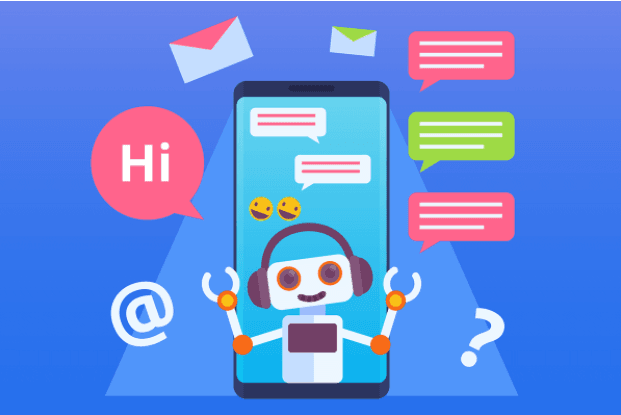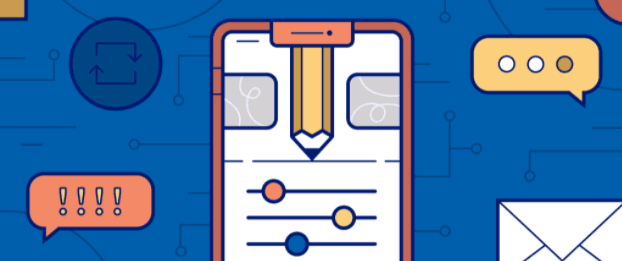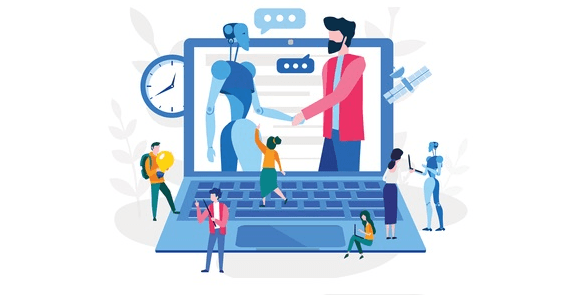
In recent years, artificial intelligence, or AI, has achieved significant advancements across various fields. Marketing has been one of the foremost sectors to benefit from this technology. Today’s marketing leverages AI for personalization and predictive analytics, offering customers highly customized messages that resonate with their needs and preferences. Machine learning algorithms enable marketers to anticipate consumer behavior with remarkable accuracy, allowing for more tailored campaigns. But marketing is far from the only industry touched by AI. As time progresses, we’re seeing the impact of AI permeate various aspects of our daily lives, from work and education to basic everyday activities, including website development. By reducing human bias and error, AI continually demonstrates its efficiency and highlights the importance of its insights in our day-to-day activities.

AI marketing is a technique for enhancing the consumer experience via the use of technology. It can also be used to improve marketing campaigns’ return on investment (ROI). Computer technicians do this through multiple processes of using large quantities of consumer analytics, machine learning algorithms and iterative processing to constantly adapt to new changes. AI works by itself to refresh its memory, learning something new by the second. With all the data being gathered from consumers today, it would be almost physically impossible to sort and tie this information back to each individual based on their preferences. Instead, AI is able to make these connections almost instantaneously, which means that customers receive the right advertisement at the exact time they need it. On a largerscale, it can be utilized to automate activities that formerly needed human intervention to work. AI marketing can be used for content creation, PPC advertising, and even web design. Marketing professionals are using this technology more and more each day in order to gain a competitive advantage over their competitors through remarkable results with advertising campaigns.
AI digital marketing tactics can change the way a business interacts with an audience. It can aid in the acquisition of new customers, the rise of revenue, and the retention of existing consumers. AI can also be used to create personalized content for each individual through the analysis of their behavior and habits online. Every Google search, social media click, blog read, collects data that spits out multiple referrals to potential new clients (PNCs) with ads that fit their liking. And while AI digital marketing is not perfect, it can help to supplement a business’s efforts by setting up an effective framework that will respond more efficiently than ever before when customers interact with them.
AI consumer analytics allows companies in all industries to collect data and turn it into information that can be used to better serve customers in real-time. Artificial intelligence is a tool, not an actual replacement for human labor or creativity. However, by using AI as the foundation of their business practices, companies are able to create new and innovative ways of doing things more efficiently than ever before. Let’s see an example of AI in digital marketing include but are not limited to.
Have you ever sat on the company customer support line waiting for over an hour just to speak to a human? With chatbots, a company dialogue with frequent questions asked, special questions/concerns are plugged into a database system so that when the consumer “chats” with the computer on the other side, almost any question can be answered instantaneously. This adds a convenience to the user and company because AI bots also have human-like dialogues with customers, which improves the customer experience and removes the waste of time spent on hold waiting to speak to a human in regard to these questions/concerns. These bots also save companies money, because of its implementation in different fields, such as HR/Customer service, marketing, finance, etc. Because the bots are working nonstop, collecting data, and PNC leads, also saving the company money and resources while human employees are not working.

With the constant advancements in AI come the higher quality of advertising. The future of advertising comes from the advancements in technology. Every consumer is ready to buy “The next big thing”, and with the scientific advancements being made daily, these “big things” usually come from technological advancements. For example, recently more and more companies have been using different types of AI, such as AR (augmented reality) to enhance the product to the consumer. With AR, the interactions of the real world environment are brought through computer generated perceptual data which then helps augment the real world, these come through different sensory factors mostly being visual. A company that has heavily influenced the use of AR in its advertising is Snapchat. With weekly updates to their “filters” page, Snapchat users are able to pick an AR filter of their liking, for example the newest “Doritos Locos” filter lets the user flip the camera and see a life-size Doritos chip in front of them wherever they are on the screen. This adds a flare as well as a competitive advantage to the companies advertising and targets any audience they feel fit with being promoted so heavily through the app. Another quality feature that promotes advertising through AI is its simplicity. Based on complex algorithms and massive data inputs, these systems operate independently, delivering the proper sorts of adverts in front of the right type of individuals. This is a major factor in programmatic advertising.

Ecommerce and retail websites recently have been notorious for tracking consumer habits, interests, and buying behavior with the help of AI. Picture this scenario: Has there been a time when you were talking about a new hoodie you wanted, and 30minutes later when you’re scrolling through your Facebook/Instagram, you see the same hoodie as an ad on your feed? You can thank AI for that. Predictive analytics can help a business figure out what their customers would really like with different recommendations. This is accomplished by gathering and analyzing information about their previous interactions with the brand.
To do this properly, companies need to use AI-powered data analytics tools that can sift through vast amounts of data and provide actionable insights.(…)

In recent years, AI services have seen consistent growth, with industry forecasts indicating a robust compound annual growth rate (CAGR) for the foreseeable future. This positive trajectory is not only promising for companies deeply invested in AI, but also exciting for long-term investors. The incorporation of AI into customer analytics has empowered brands with unprecedented insights into their consumer base. Utilizing technology capable of analyzing vast populations, companies can pinpoint preferences and interests, thereby enabling highly targeted marketing campaigns.
Today, the role of data scientists and programmers in marketing departments is increasingly crucial. These experts are not just there to craft exceptional ads; their skills are forming the foundation of most future marketing campaigns through AI tools. Modern data analysts must now work in tandem with AI to make the most out of data analytics and customer data. This new breed of analysts speaks the language of AI, allowing for effective training and tuning of AI tools. By adopting a hybrid approach that combines Artificial Intelligence and Human Intelligence, companies can achieve the most accurate insights and results.
Influential industry leaders are also recognizing the transformative potential of AI. For example, Chase’s Chief Information Officer, Roham Amin, has cited substantial benefits in customer experience due to AI implementation. According to their research, a large percentage of businesses are already benefiting from improved customer experiences, while others anticipate revenue gains in the near term. The pandemic has further accelerated the adoption of AI, particularly in tasks such as workforce planning, simulation modeling, and demand projection. This suggests that we can expect even more sophisticated applications of AI and machine learning across a wide range of industries, including financial services.

Altogether, we can see how prosperous AI’s growth has been. Marketing teams today will be under more pressure to show executive stakeholders the value and ROI of marketing because of this. Teams will use AI technologies to help them achieve these goals, better allocate cash to successful initiatives, and provide marketing metrics that show how effective campaigns are.
When it comes to harnessing the power of digital marketing strategies in this AI-driven age, who better to guide you than Maven Marketing Group? As Chicago’s premier web design company, we provide digital marketing solutions to companies globally. Whether you’re in need of website management services, web design, or digital marketing services, we’re here to assist. Join the leaders in the field and elevate your marketing game with us!
Hope this article helps you out! If you want more advice for expanding your reach, getting leads, & growing your business — let us know in the comment section below!
Or if you’d like help implementing any of these tactics into your business – drop us a line! We’d love if you left a comment/question for us to answer below!
In what ways could you see your business implementing AI into its day to day marketing?
Hey, we’re Maven Marketing Group.
We’re determined to make a business
grow. Our only question is…
will it be yours?